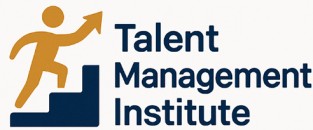Understanding Talent Management
Recognizing the Fundamentals of Talent Management
Talent management is pivotal in any organization, intertwining with various human resources functions to ensure a thriving workforce. It goes beyond mere recruitment and encompasses a comprehensive approach to managing human capital strategically. At the heart of effective talent management is a focus on business both immediate and long-term objectives, nurturing employee potential, and aligning individual aspirations with organizational goals.
In the contemporary business landscape, leaders and managers recognize the importance of creating culture and fostering a work environment that attracts, develops, and retains skilled talent. Jeff Smith exemplifies this by demonstrating how human resources can be leveraged to meet business goals effectively. His approach to talent acquisition is not just about filling positions; it's a meticulous process where understanding organizational culture, utilizing data, and leveraging technology play crucial roles.
For those eager to understand more about how talent management strategies can be optimized, considering the integration of technology and the role of employers in leadership development is critical. Modern challenges like remote work and artificial intelligence influence not just the acquisition of talent, but how companies choose to develop and retain their employees.
As reflected in insights from industry think tanks like Optimizing the Staff Application Process for Effective Talent Management, recognizing the unique needs of both the company and the talent pool is essential for sustained success. A robust talent management strategy not only boosts employee engagement and satisfaction but also directly contributes to a strong corporate culture, ultimately reflecting in the company’s performance and resilience in a competitive market.
Jeff Smith's Approach to Talent Acquisition
Talent Acquisition: Beyond the Conventional Approach
In today's dynamic business landscape, talent acquisition demands a shift in strategy to meet the evolving needs of organizations and their leaders. Jeff Smith, a revered figure in human resources, demonstrates a distinctive approach that transcends traditional recruitment methods. Focusing on creating a robust company culture and leveraging data-driven insights, his strategies set a benchmark for attracting top talent. Smith emphasizes the importance of aligning talent acquisition with the broader organizational goals. This involves anticipating future business needs and understanding the core competencies required to achieve these objectives. Leaders and managers play a pivotal role in this process by clearly communicating their strategic focus to the human resources teams. Moreover, integrating technology into the recruitment process has become crucial. Jeff Smith advocates for the use of artificial intelligence and advanced analytics to streamline candidate search, ensuring that the best fit for a role is identified efficiently. This technological adoption not only reduces time but also enhances the diversity of the talent pool by minimizing biases inherent in human-led processes. Recognizing the growing trend of remote work, Smith highlights the necessity of adapting talent strategy to encompass flexible working arrangements. This not only widens the pool of potential candidates but also aligns with the preferences of the modern workforce. Smith's methodologies also place great importance on the human element of talent acquisition. Creating culture and building a sense of belonging from the initial stages of contact with potential employees are paramount. Such an approach fosters a connection with the organization that can significantly affect employee retention in the long run. For further insights and strategies developed by experts in the field, the importance of effective talent management practices can be explored here. These practices are essential for any company aiming to build a resilient and dynamic workforce that can adapt to future challenges.Developing Employee Potential
Enhancing Employee Growth Through Strategic Development
Developing the potential of employees is a central focus for leaders in any organization. Jeff Smith emphasizes the importance of aligning development initiatives with the overall talent strategy to foster a thriving business environment. His approach is grounded in the principles of organizational psychology and well-documented human resources practices. One of Smith's key strategies involves personalized development plans. By focusing on individual employee needs, businesses can tailor training and growth opportunities that resonate with each person’s career trajectory. This personalized approach not only boosts employee engagement but also helps in nurturing loyalty towards the company. Incorporating data and technology into talent management has been transformative. With tools like artificial intelligence, managers can assess skills gaps and provide targeted training that aligns with not just current roles, but future organizational needs. Remote work setups also necessitate unique development strategies, requiring a shift in how leadership is cultivated and leadership development executed across the board. Creating culture within businesses is another aspect Jeff Smith highlights. A supportive corporate culture encourages employees to pursue growth confidently and adapt to changes. It is crucial for companies to embed a strong sense of culture where continuous learning and development are deemed essential. For a deeper dive into how organizations can optimize their human resources and talent management efforts, understanding human resource staffing for effective talent management is essential.Retention Strategies in a Competitive Market
Fostering Employee Engagement in a Competitive Landscape
The challenge of retaining talent in today’s competitive market can't be overstated. With more opportunities available than ever, organizations must prioritize the cultivation of a robust corporate culture that encourages employee loyalty and long-term commitment. Smith emphasizes the importance of creating culture environments where employees feel valued and engaged. A vital element in Smith’s retention strategy is focusing on genuine leadership development. Ensuring that leaders are equipped to nurture and guide employees has a profound impact on overall morale and work satisfaction. Moreover, integrating data-driven insights into human resources provides a competitive edge. By leveraging technology and data analytics, businesses can tailor retention strategies that are uniquely suited to their people. This involves human-centered approaches, which extend beyond generic incentives to understanding individual motivators. Smith explains that companies like Time Warner have excelled by aligning their talent strategies with a clear understanding of employee needs. Fostering a workplace that respects individuality and promotes growth not only aids in retention but also enhances performance across the board. Ultimately, promoting a supportive and engaging company culture can serve as a magnet for talent, while also offering a meaningful environment that encourages employees to thrive and remain invested in the company’s success.The Role of Technology in Talent Management
Leveraging Technology to Enhance Talent Strategies
The intersection of technology and talent management is reshaping the human resources landscape. In modern businesses, leveraging technology can significantly enhance a company's ability to attract, develop, and retain top talent. Through advanced tools and platforms, Jeff has implemented strategies that have optimized the talent management process, fostering better communication and efficiency within teams. One notable trend is the use of artificial intelligence (AI). AI can streamline talent acquisition by analyzing large datasets to help identify the best candidates, freeing up valuable time for HR professionals to focus on strategic decision-making. Implementing AI can also aid in developing personalized leadership development programs, supporting employees' growth tailored to their specific needs and career aspirations. With remote work becoming more prevalent, digital collaboration tools have become essential. They ensure that employees remain connected and engaged, promoting a cohesive corporate culture even when teams are geographically dispersed. Organizations utilizing these tools foster inclusivity and ensure that all employees feel part of the company's ongoing narrative, enhancing overall employee satisfaction. Additionally, data analytics is transforming how companies assess performance and potential. Using this technology, businesses can identify trends in employee behavior and performance, allowing leaders to make informed decisions about promotions, training, and resource allocation. Jeff has integrated data-driven approaches to create a culture of continuous improvement in human resources. Embracing these technological advancements requires an inclusive strategy where leaders and managers are well-equipped to guide their teams through digital transformations. By focusing on tech-backed initiatives, organizations are better positioned to adapt to market dynamics, securing their competitive edge in talent management.Future Trends in Talent Management
Embracing Technological Advancements
As businesses continue to evolve, the integration of technology in talent management is becoming increasingly crucial. Jeff Smith, an advocate for leveraging technology, highlights the importance of using data-driven approaches to enhance talent strategies. This involves utilizing artificial intelligence to streamline recruitment processes and improve employee engagement.
Shifting Towards Remote Work
The rise of remote work has significantly impacted how companies approach talent management. Leaders must adapt to this new norm by fostering a corporate culture that supports flexibility and productivity. Jeff Smith emphasizes the need for leaders to create a culture that aligns with the diverse needs of remote employees while maintaining strong leadership development initiatives.
Focus on Leadership and Development
Developing leadership skills among employees is a priority for many organizations. Jeff Smith explains that investing in leadership development not only enhances individual potential but also strengthens the overall business. Companies are increasingly focusing on creating tailored development programs that cater to the unique needs of their workforce.
Data-Driven Decision Making
Data plays a pivotal role in shaping talent management strategies. By analyzing employee data, companies can identify trends and make informed decisions that benefit both the organization and its employees. Jeff Smith advocates for a data-centric approach to human resources, enabling businesses to optimize their talent management efforts effectively.
Building a Sustainable Talent Strategy
Looking ahead, the focus on sustainability in talent management is expected to grow. Companies are recognizing the importance of creating long-term strategies that support employee well-being and organizational growth. Jeff Smith's insights into sustainable talent strategies provide a roadmap for businesses aiming to thrive in an ever-changing market.













